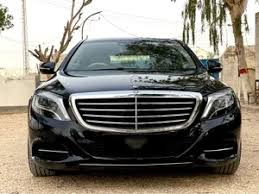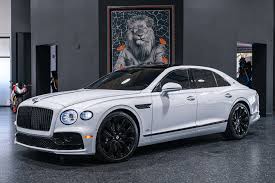Introduction Electric Cars
Electric Cars 2025 shifting toward cleaner and more sustainable mobility, electric cars and hybrid vehicles are becoming increasingly popular in 2025. Many car buyers are still confused about the differences between the two. Let’s break it down simply so you can make a smart decision.

What is a Hybrid Car?
A hybrid car uses a combination of an internal combustion engine (ICE) and an electric motor. The battery in a hybrid is smaller than in a pure EV and is usually charged through regenerative braking or the engine itself. Electric Car
People Can Also Buy: Dubai Luxury Car Scene Supercars
Pros of Electric Cars
- Instant Torque & Smooth Drive – Faster acceleration than many gas cars.
- Eco-Friendly – Zero exhaust emissions.
- Lower Running Costs – Cheaper fuel and reduced maintenance.
- Quiet Ride – Minimal noise compared to combustion engines.
- Government Incentives – Tax credits, rebates, and reduced road taxes in many regions.
Cons of Electric Cars
- Charging Infrastructure – Limited in some areas, especially rural regions.
- Longer Refueling Time – Charging takes longer than filling a fuel tank.
- High Upfront Cost – EVs are generally more expensive than gas cars.
- Battery Degradation – Over time, batteries lose capacity.
- Range Drop in Cold Weather – Winter driving can reduce battery performance.
People Can Also Find: Benz CLE Coupe
Tips for Owning an Electric Car
- Plan Charging Stops: Use apps like PlugShare or Google Maps to locate nearby charging stations.
- Install a Home Charger: A Level 2 home charging station saves time and adds convenience.
- Monitor Battery Health: Avoid charging to 100% daily; 80–90% is healthier for long-term battery life.
- Drive Efficiently: Smooth acceleration and regenerative braking extend driving range.
- Stay Updated: Keep your EV software updated for better performance and features.

Key Highlights of Electric Cars 2025:
- Runs on both petrol/diesel + electricity
- Better fuel efficiency than standard cars
- Does not need external charging (in most mild/full hybrids)
- Lower emissions than conventional cars
What is the Difference Between Hybrid and Electric Cars?
Key Differences Between Hybrid and Electric Cars 2025
| Feature | Hybrid Cars | Electric Cars |
|---|---|---|
| Power Source | Engine + Electric Motor | Fully Electric Battery |
| Fuel Usage | Petrol/Diesel + Electric | Only Electricity |
| Range | Longer (engine support) | Limited (depends on battery) |
| Charging | No external charging needed | Requires external charging |
| Eco-Friendliness | Lower emissions (but still uses fuel) | Zero emissions |
| Cost | Moderate | Higher upfront cost |
| Best For | Long-distance + mixed driving | City driving & eco-conscious users |
Conclusion
In 2025, hybrid cars are a great middle ground for buyers not ready for full EVs, while electric cars are the best option for eco-conscious drivers who want zero emissions and future-proof technology. If you want fuel savings and longer range without worrying about charging, a Hybrid is a better choice.
Electric cars are the future of mobility — cleaner, quieter, and cheaper to run. While challenges like charging infrastructure and initial costs exist, the long-term benefits outweigh the drawbacks for most drivers. If you want zero emissions, lower running costs, and are ready to invest in charging solutions, an Electric Car is the future-friendly option.

FAQs of Electric Cars 2025
Q1. What is an electric car (EV)?
An electric car is a vehicle powered by an electric motor instead of a traditional internal combustion engine. It uses rechargeable batteries to store and supply energy.
Q2. How long does it take to charge an electric car?
Charging time depends on the charger type:
- Fast Chargers (DC): 30–60 minutes (up to 80%)
- Level 2 (Home/Workplace): 4–8 hours
- Level 1 (Standard Outlet): 12–24 hours
Q3. How far can an electric car go on a single charge?
Modern EVs usually offer 200–400 miles of range, while luxury models like Tesla, Lucid, or Mercedes EQS can exceed 450 miles.
Q4. Are electric cars cheaper to run than petrol/diesel cars?
Yes. EVs cost less per mile because electricity is cheaper than fuel, and maintenance is lower due to fewer moving parts.
Q5. Do electric cars require maintenance?
EVs need less maintenance since there’s no oil change, spark plugs, or exhaust system. However, you still need to service tires, brakes, suspension, and battery health.
Q6. Are electric cars environmentally friendly?
Yes, EVs produce zero tailpipe emissions. However, their environmental impact also depends on electricity sources and battery production.
Q7. How long do EV batteries last?
Most EV batteries last 8–12 years or 100,000–150,000 miles, with warranties covering replacements.



